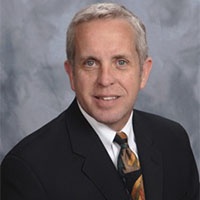Lakeland Felony Lawyer, Michigan
Sponsored Law Firm
-
 x
x

Click For More Info:
-
Timothy L. Hensick & Associates, P.C.
528 West Grand River Avenue Howell, MI 48843» view mapAccident & Injury Law Dedicated. Professional. Diligent.
My practice has been built on long hours of hard work, by dedicating myself to properly handling cases for clients, & by listening carefully to my clients.
800-970-6510
Thomas S. Piotrowski
✓ VERIFIEDCriminal, Estate, Felony, White Collar Crime, Misdemeanor
Thomas Piotrowski is an experienced and aggressive litigator who handles cases in and around the Detroit metro area. Since graduating cum laude from t... (more)
Demosthenes Lorandos
US Supreme Court, State Appellate Practice, US Courts, Felony
Status: In Good Standing Licensed: 31 Years
Victoria L. Lesner
Lawsuit & Dispute, Labor Law, Felony, Credit & Debt, Slip & Fall Accident
Status: In Good Standing Licensed: 32 Years
Alec J. McLeod
Traffic, Immigration, Child Custody, Felony
Status: In Good Standing Licensed: 41 Years
Lyle Dickson
Divorce & Family Law, Felony, DUI-DWI, Criminal
Status: In Good Standing Licensed: 26 Years
FREE CONSULTATION
CONTACTKyle Hampton Bredell
Criminal, DUI-DWI, Felony, Medical Malpractice
Status: In Good Standing Licensed: 7 Years
Ellen K. Michaels
Criminal, DUI-DWI, Misdemeanor, Felony, White Collar Crime
Status: In Good Standing Licensed: 34 Years
FREE CONSULTATION
CONTACTAlexander Walter Hermanowski
Litigation, Felony, Insurance, Wrongful Death
Status: In Good Standing Licensed: 11 Years
 Timothy L. Hensick Howell, MI
Timothy L. Hensick Howell, MI Practice AreasExpertise
Practice AreasExpertise

